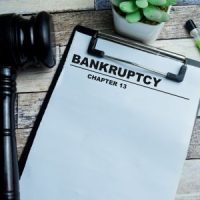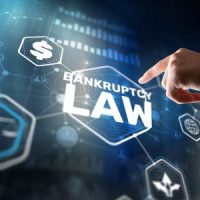Category Archives: Bankruptcy

What Are the Qualifications for Chapter 13 Bankruptcy?
Overall, the qualifications for Chapter 13 bankruptcy are that the debtor must be honest and unfortunate. Honest debtors truthfully and accurately complete paperwork, cooperate with the trustee (the person who manages a bankruptcy for a judge), and fully respect the authority of the bankruptcy judge. Unfortunate debtors file bankruptcy due to financial problems which… Read More »

Can I File Bankruptcy on Back Taxes?
Yes, bankruptcy takes care of back taxes. In fact, in many cases, back taxes are dischargeable in bankruptcy. Since back taxes are priority unsecured debts, like student loans and most employee wage claims, certain additional eligibility requirements apply. We’ll examine these requirements for discharge below. The modern, slimmed-down IRS often doesn’t start aggressive collection… Read More »

Which is Better: Chapter 7 or Chapter 13?
Debtors with excessive unsecured debts, like credit cards, usually file Chapter 7. Debtors with unpaid secured debts, like past due mortgage payments, usually file Chapter 13. Though they go about it in different ways, both these kinds of consumer bankruptcy accomplish the same goal , which is giving honest yet unfortunate debtors a fresh… Read More »

Is Bankruptcy Really a Fresh Start?
Congress enacted the Bankruptcy Code for just this purpose. This legal debt relief program eliminates burdensome unsecured debts, like credit card bills, and gives debtors a chance to catch up on past-due secured debt payments, like home mortgage payments. However, bankruptcy isn’t a magic wand that reverses financial fortunes. Unless debtors have an exit… Read More »

Why Do People File Bankruptcy?
Quite simply, people file bankruptcy because they owe more money than they can pay, and they need a fresh start. This fresh start is available to honest yet unfortunate debtors. Honest debtors complete paperwork accurately, are forthcoming about all their debts and assets, fully cooperate with trustees (people who supervise bankruptcies for judges), and… Read More »

What is the Best Bankruptcy for Seniors?
As outlined below, the best bankruptcy for seniors usually depends on the type of debt the senior has. Before the mid 1990s, almost no one asked this question, because almost no senior adults filed bankruptcy. However, the filing rate for the over-55 demographic has increased over 60 percent since 1991, even as the overall… Read More »

What Happens with Chapter 7 Bankruptcy?
Chapter 7 bankruptcy, which is also known as a liquidation bankruptcy, discharges most unsecured debts, such as medical bills and credit cards. According to the Bankruptcy Code, a discharge “releases the debtor from personal liability for certain specified types of debts.” In plain English, discharge eliminates the legal obligation to pay a debt, but… Read More »

How Soon Can I Buy a House After I File Bankruptcy?
By the book, most people can buy a house between two and four years after they file bankruptcy. These waiting periods are Fannie Mae standard waiting periods. The exact length depends on the type of loan, type of bankruptcy filing, and a few other factors. Waiting the required number of months isn’t enough. Prospective… Read More »

A Quick Guide to Bankruptcy and Government Benefits
This guide will be quick because, in most cases, government benefits are 100 percent exempt in Illinois bankruptcies. Furthermore, the Automatic Stay also extends to government benefits. The trustee (person who oversees a bankruptcy for a judge) cannot seize an exempt asset, like government benefits or a retirement account, and liquidate it to pay… Read More »

What Will Disqualify You from a Security Clearance?
Contrary to popular myth, filing bankruptcy doesn’t disqualify you from a security clearance. Such bankruptcy filing discrimination is illegal under federal law. In fact, the opposite is usually true. Although the underlying debt problems that force most people to file bankruptcy could disqualify you from a security clearance, filing bankruptcy often convinces authorities that… Read More »


